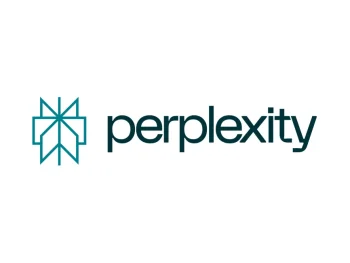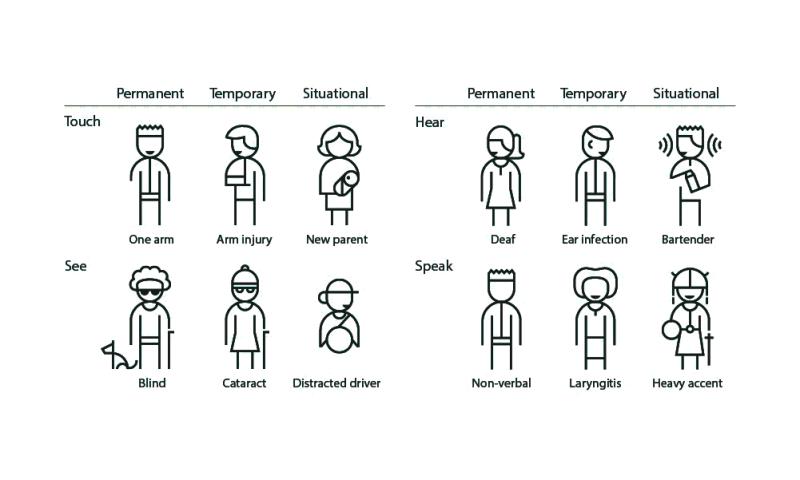by JCM | 28 Sep, 2025 |
 I’ve seen this piece shared a lot, and like it. I’ve long been a fan of SystemsThinking (check my bio, it’s at the heart of my approach to everything).
I’ve seen this piece shared a lot, and like it. I’ve long been a fan of SystemsThinking (check my bio, it’s at the heart of my approach to everything).
But I’ve always seen Systems Thinking as more of a mental model or reminder to look beyond the immediately obvious causes and effects that could impact a strategy, rather than an enjoinder to try and literally map out interactions between all the different components.
As this piece notes, if you try to map out every interaction in a complex, shifting, uncertain system, you’ll never succeed. There are too many variables, all changing. Complexity Theory – even Chaos Theory and the Heisenberg Uncertainty Principle – rapidly becomes more helpful. Only these usually aren’t of much *practical* help at all.
It’s like playing chess – you don’t bother mapping out ALL the possible moves, as that would take forever (look up the Shannon number to get a sense of how many there could be – it’s more than the number of atoms in the observable universe…), and is therefore useless.
With experience, good chess players (and good strategists) can rapidly, intuitively home in on the moves most likely to work – both now and several moves down the line.
The problem is that the same moves will rarely work twice – at least not against the same opponent. And in a complex, ever-changing system, you’ll rarely have the opportunity to make the same sequence of moves more than once anyway, as the pieces will be constantly changing position on the board. Which will also be constantly changing size and shape.
“But metaphor isn’t method.”
That’s the key line from the linked piece. Business strategy isn’t chess – because you’re not restricted to making just one move at a time, or moving specific pieces in specific ways.
The challenge is to keep as flexible as possible while still moving forwards, which is why this bit of advice – one line of many I like, especially when combined with the recommendation to design in a modular, adaptive way – is one I pushed (sadly unsuccessfully) in a previous role:
“Instead of placing one big bet, leaders need a mix of pilots, partnerships, and minority stakes, ready to scale or abandon as conditions change.”
The problem is that strategy decks – still at the heart of most businesses and almost every marketing agency – are intrinsically linear, despite trying to address nonlinear, complex systems.
This is why most strategies end up not really being strategies, but plans, or lists of tactics.
And thats why most “strategies” fail.
Don’t focus on the *what* – focus on the *how*. Great advice from my former boss Jane O’Connell, which took me a long time to truly understand. It’s a concept that’s core to this excellent piece – and incredibly hard to explain.
Have a read – and a think.
by JCM | 31 Jul, 2024 |
 “If your website is referenced in a Perplexity search result where the company earns advertising revenue, you’ll be eligible for revenue share.”
“If your website is referenced in a Perplexity search result where the company earns advertising revenue, you’ll be eligible for revenue share.”
How many qualifiers can be fitted into one sentence, all while providing next to no information?
To be clear, I’ve loved Wordpress ever since I migrated my old blog to it [checks archives] *18* years ago [damn…] I also fully get why they’re doing this – some money is better than none, it may work out, and it may actually lead to more traffic / engagement / visibility for Wordpress sites.
But this all feels a little like promises of scraps falling from the table of people who are getting scraps falling from an even higher table.
Perplexity currently claims to be making US$20 million from paid subscriptions to its pro service – about the only source of income it currently seems to have, despite its $2.5-3 billion valuation. If they’re now giving away some of that limited income, I can’t see an obvious path to profitability, given the hefty running costs of GenAI.
This doesn’t just go for Perplexity, but for all these GenAI tools:
1?? What’s the path to a sustainable content publishing-based business model (and all these GenAI companies are content companies) when being able to produce infinite content on demand means the traditional route for making money for these kinds of companies – advertising inventory – is also infinite?
2?? Value comes from scarcity. Content / as inventory is no longer scarce. How do you make something that’s not scarce seem valuable enough to get people to pay for it?
3?? And when all GenAI models offer more or less the same output, and more or less the same level of reliability, and successful features and approaches can be replicated by the competition in next to no time, how do you stand out from the crowd?
Being a content/tech geek I’ve been thinking about this a lot over the last couple of years. Perplexity’s approach is one I like (I did history at university, so I love a good list of sources, even if they’ve mostly just been added to make your work look more credible and most of them are irrelevant, as is often the case with Perplexity) – but I’m far from convinced it has money-making potential. As Wired has put it, Perplexity is a bullshit machine. How valuable is bullshit?
Basically, we’re firmly in the destruction phase of creative destruction. The creative part is yet to come
But still – at least the providers of the raw material these LLMs are so reliant on are starting to get thrown a few bones. That’s a step in the right direction – because as that recent Nature study made clear, the proliferation of AI-generated content risks surprisingly rapid synthetic data-induced model collapse.
Human-created content may no longer be king, but it remains vitally important. Without it – and a hefty dose of critical thinking – the whole system comes tumbling down.
by JCM | 30 May, 2020 |
“We are the losers in this crisis.”
Sadly unsurprising, but still anger-making. Being child-free, I’ve mostly been enjoying working from home – but if this *is* going to be the new normal, we urgently need to find ways to make homeworking work for everyone.
This shift away from the office could and should have been a fantastic opportunity to break down barriers to employment for people who have previously struggled to participate in the traditional office-based nine to five – whether due to caring commitments, location, disability, or simple hiring prejudice.
We 100% cannot afford to allow it to reinforce structural inequality or outdated stereotypes.
by JCM | 27 Mar, 2020 |
Cut to the chase about halfway down, and the potential benefits of remote working on company culture and productivity here are pretty accurate, based on my experience of working in a globally distributed team at Microsoft and as a freelancer back in the day.
These benefits don’t just happen by magic, though – it takes concerted effort to transition to and encourage new ways of working, and some people will find this shift harder than others. They’ll need support, and we’ll all have a responsibility to help our colleagues make the switch if this is going to work.
They say it takes 60 days to form new habits… Will the lockdowns so many of us are experiencing last long enough for these new ways of working to bed in to our working culture? And when we do finally return to work properly, will we be able to bring their benefits back with us?
by JCM | 12 Mar, 2020 |
Surprising wisdom from Chris Rock, which seems particularly pertinent as we reluctantly go into social distancing / self-isolation mode:
“Naive people will tell you, ‘There’s always tomorrow and you’ll always get another chance.’ The smart people will tell you, ‘You probably get three chances at anything in life, and you’ll probably be busy for the first two chances. When you get that third one you better be f—ing ready.'”
There’s going to be a bunch of missed chances over the next few weeks. But we’ll also all have plenty of time to prepare for future ones: Time to read that book, take that online course, learn that skill, do those push-ups, and generally get ready for that next chance once life returns to normal.
(More clichéd LinkedIn style than my usual posts, this – but years of life as a freelancer taught me the importance of maintaining a positive mindset and future-focus when working from home. Get a constructive hobby, and make the most of the extra time saved by not commuting to pick up new knowledge and skills. It’s a major benefit, used well.)
by JCM | 11 Mar, 2020 |
 I’m not a fan of user personas. They’re meant to remind us of alternative perspectives, but tend to become either so specific as to make us blinkered, or so single-minded as to be unrealistic.
I’m not a fan of user personas. They’re meant to remind us of alternative perspectives, but tend to become either so specific as to make us blinkered, or so single-minded as to be unrealistic.
This piece does a good job of summarising how this fallacy of assuming we can identify user archetypes came about, how it misses so much vital nuance and complexity, and why we need to shake it off if we’re ever going to meet the needs of real users via a more effective, inclusive design approach to developing a better customer experience.
 I’ve seen this piece shared a lot, and like it. I’ve long been a fan of SystemsThinking (check my bio, it’s at the heart of my approach to everything).
I’ve seen this piece shared a lot, and like it. I’ve long been a fan of SystemsThinking (check my bio, it’s at the heart of my approach to everything).
 “If your website is referenced in a Perplexity search result where the company earns advertising revenue, you’ll be eligible for revenue share.”
“If your website is referenced in a Perplexity search result where the company earns advertising revenue, you’ll be eligible for revenue share.”
